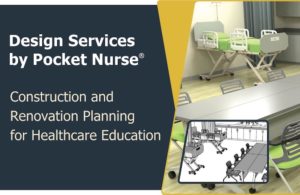Sim Center
A Healthcare Sim Center is a location where healthcare education that involves experiential learning is conducted. A sim center is a dedicated area within a healthcare education building, medical center, or training facility which is devoted to medical simulation. A lot of sim centers have larger facilities with multiple simulation labs designated, whereas, smaller spaces with only a single lab may be named as simulation laboratories or simulation spaces. Sim Centers are designed specifically to meet the needs of the learners and key stakeholders through the incorporation of different modalities, equipment, and strategies. Sim Centers provide experiential learning opportunities to a variety of learners and can utilize multiple modalities to achieve learning objectives.
Sim Center Accreditation and Endorsement
The list below provides information on becoming an identified center or professional that has achieved certification, certificate, accreditation, or endorsement. The Society for Simulation in Healthcare has a Sim Center Directory. This is an excellent resource for locating sim centers.
Sponsored Content:
- SESAM Accreditation
- INACSL Core IV Endorsement
- Simulationist Certification
- Canadian Nurse Educators Institute Simulation Certificate Program
- Simulation Degree Programs
- SSH Center Accreditation
Learners
Sim center activities are designed to instruct a wide variety of healthcare providers and learners through a process of immersive learning in which the learners respond to various patient conditions and then reflect upon their own responses making changes as needed (debriefing). Some examples of learners are healthcare providers, healthcare professional students, the military, hospitals, and EMS. The healthcare workers for Sim Centers are:
- Dentistry: Dentist, Dental Students, Dental Hygienist, Hygienist Students
- Healthcare Professionals: Dieticians, Nutritionist, Sonography, and Students of these professions
- Medical: Doctors, Surgeons, Specialists, Interns, Residents, Interns, Medical Students, Physician Assistance (PA)
- Military: Medics, Field Hospitals, Combat Zones, Stop The Bleed Training, Transport Flights, Stabilization of Traumatic Injuries
- Nursing: Licensed Nurses (RN, LPN, LVN), Advanced Practice Registered Nurses (APRN), Certified Registered Nurse Anesthetist (CRNA), Nursing Students
- Pre-hospital: Paramedics, EMTs, EMS Students
- Therapists: Physical Therapist, Occupational Therapist, Speech Therapist, Athletic Trainers, Therapy Students
- Unlicensed Assistant Personnel
Modalities and Fidelity
According to the Healthcare Simulation Dictionary, modality is a term used to refer to the type(s) of simulation being used as part of the simulation activity, and a selected type or types of simulation equipment, concept, or technique that constitutes a method of simulation use. Here are some common modalities used in healthcare simulation:
Sponsored Content:
- Artificial Intelligence – A system of computerized data-gathering and prediction that models human behavior and decision-making with minimal human intervention. In healthcare simulation, AI often refers to underlying programming that provides physiological or system-based algorithm changes based on inputs from users and learners. Often paired with machine learning, in which the software is programmed to alter algorithms and predictions based on observed data and results without human intervention. Virtual patients use artificial intelligence to react appropriately to the user or learner.
- Augmented Reality/AR – A type of virtual reality in which synthetic stimuli are superimposed on real-world objects, usually to make information that is otherwise imperceptible to human senses perceptible; A technology that overlays digital computer-generated information on objects or places in the real world for the purpose of enhancing the user experience; The combination of reality and overlay of digital information designed to enhance the learning process.
- Fidelity – The degree to which the simulation replicates the real event and/or workplace; this includes physical, psychological, and environmental elements. The ability of the simulation to reproduce the reactions, interactions, and responses of the real-world counterpart. Fidelity care be related to conceptual, environmental, functional, physical, psychological, high- or low-fidelity.
- Gaming – An educational tool intended to provide students/learners an opportunity to apply knowledge through formal discussion of a described scenario. In the context of tabletop exercise, involves key personnel discussing simulated scenarios in an informal setting. Gaming can be used to assess plans, policies, and procedures. Some examples include tabletop simulation and screen-based simulation.
- Hybrid Simulation – The union of two or more modalities of simulation with the aim
of providing a more realistic experience. In health care simulation, hybrid simulation is most commonly applied to the situation where a part task trainer is realistically affixed to a standardized/simulated patient that allows for the teaching and assessment of technical and communication skills in an integrated fashion. - In-Situ – Taking place in the actual patient care setting/environment in an effort to achieve a high level of fidelity and realism. This training is particularly suitable for difficult work environments, due to space constraints or noise. For example, an ambulance, a small aircraft, a dentist’s chair, a catheterization lab. This training is valuable to assess, troubleshoot, or develop new system processes.
- Manikin-Based SImulation – A life-sized human-like simulator representing a patient for health care simulation and education. A manikin can be a full or partial body representation of a patient for practice. A full or partial body simulator can have varying levels of physiologic function and fidelity.
- Mixed Reality/XR/MR – A category that encompasses the hybrid combination of virtual
reality environments and reality, and often encompasses the definition of Augmented Reality (AR), but has more virtual features than typical AR. The blend of what is physically present to what is 100% computer-generated is expressed in this continuum. - Standardized Patients/Standardized Participants/Simulated Patient/SP – A person who has been carefully coached to simulate an actual patient so accurately that the simulation cannot be detected by a skilled clinician. In performing the simulation, the SP presents the gestalt of the patient being simulated, not just the history, but the body language, the physical findings, and the emotional and personality characteristics as well.
- Virtual Reality/VR – The use of computer technology to create an interactive three-dimensional (3D) world in which the objects have a sense of spatial presence that gives an immersion effect. VR often refers to the 3D Head-mounted Display VR (HMD VR) in which the Virtual World is projected using a head-mounted display.
- Wearable Simulators – Are designed with interactive technology and realistic anatomy and physiology to replicate associated patient care. Similar to the game of Operation, sensors embedded into the wearable product send haptic signals to the wearer, allowing them to provide real-time, authentic patient reactions throughout the learning experience.
Healthcare Sim Faculty and Staff
Sim centers require different professions and expertise to perform at the highest level to achieve the best learning outcomes. A couple of roles are found in the majority of all sim centers. The professional healthcare simulation roles are sim educator or sim facilitator and the simulations operations specialist or technician.
- Educator/Facilitator – A Healthcare Simulation Educator is a clinical simulation professional whose responsibility is to develop and implement clinical simulation-based education designed to enhance patient safety and quality during healthcare delivery. Also referred to as a Clinical Simulation Educator, Simulation Clinical Educator, Simulation Facilitator, and Simulation Faculty, this position is extremely important across the field of healthcare simulation. In addition to designing the plan of delivery for healthcare simulation instruction, Clinical Simulation Educators also help coordinate a number of key components of medical simulation programs delivered by either a healthcare simulation center or an institution or facility.
- Simulation Operations/Technician – The eight-domain model was created using a modified Delphi method at the SimGHOSTS international conference in 2013. Self-identified individuals working within this profession created pooled descriptions of roles and responsibilities. Following this activity, emails were sent out to 30 individuals who reported expertise in one or more of the six initially described content fields: education, audio/video, information technology, medical knowledge, theater and stage, and simulation methodology and practice.
Simulation Faculty and Staff Development Through Professional Organizations
To function at the highest level in the sim center, sim center personnel should obtain faculty or professional development. There are multiple organizations within the healthcare simulation community that offer education and professional development opportunities for their members and the healthcare simulation community. The educational experiences are available via journal articles, webinars, annual conferences, and special educational programs. HealthySimulation.com is one of these organizations with articles, webinars, and simulation courses.
The list below includes some of the simulation organizations. Click on the organization to find out more about them and what is offered for professional development:
Click here to find out more about simulation vendors!
Sim Center Latest News
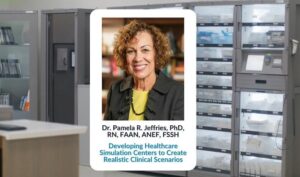
Dr. Pam Jeffries Upcoming Webinar on Developing Healthcare Simulation Centers to Create Realistic Clinical Scenarios!
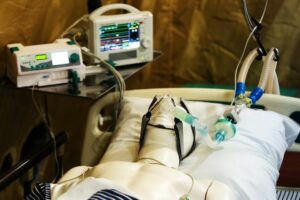
How to Run a Clinical Simulation Program Without a Simulation Center

10 Commandments for the Medical Simulation Novice Debriefer
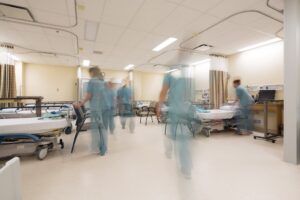
New Clinical Simulation Center Updates | January 2022
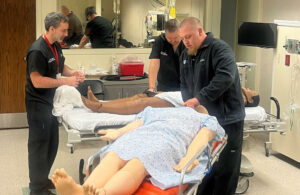
WISER TechSim Course Aims to Improve Sim Center Operations & Efficiency

Utilization of Engineering Programs for Healthcare Simulation Innovation

How Simulation Centers Can Expand Use and Support Innovation
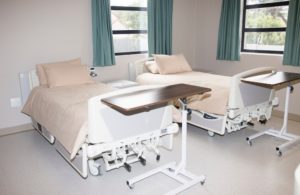
New Clinical Simulation Center Updates | August 2022

Mobile Simulation Centers Help Train Learners on the Go

New Clinical Simulation Center Updates | May 2022

New Clinical Simulation Center Updates | November 2021
Sponsored Content:



